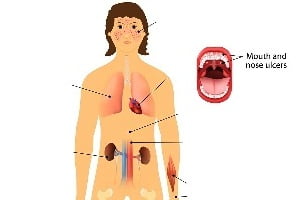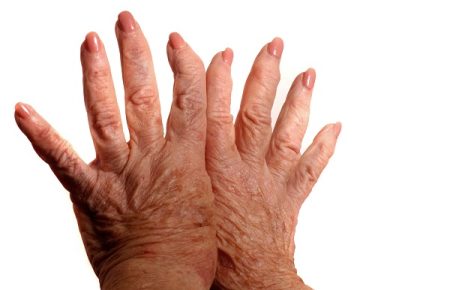
How is Lupus Diagnosed?
Diagnosing lupus can be a bit difficult as it can produce a variety of symptoms and these symptoms vary from person to person. These signs and symptoms overlap with those of many other conditions and also vary over time. No single test can diagnose lupus.
A combination of various blood tests, urine tests and physical examination leads to a conclusion. This is the reason that doctors and physicians take time to actually diagnose the disease. Sometimes, symptoms are not sufficed to confirm the diagnosis. After a careful monitoring of symptoms, signs and lab tests, a doctor confirms lupus. Read about lupus signs and symptoms.
There are disease activity indices that allow monitoring of lupus. They allow the doctor to examine the patient for improvement or worsening of the disease. Some of these are:
- British Isles Lupus Assessment Group Index (BILAG)
- Systemic Lupus Erythematosus Disease Activity Index (SLAM)
- European Consensus Lupus Activity Measurement (ECLAM)
- Lupus Activity Index (LAI)
Pain and fatigue are not tracked by lupus indices which create a problem for people suffering from lupus.
Telling the doctor about symptoms and other problems help in understanding the disease in a much better way. The American College of Rheumatology (ACR) has devised some classification criteria that help in the diagnosis of this disease as no single symptom qualifies to be a major sign of lupus.
Following are the criteria included by ACR for the diagnosis:
- malar rash/ butterfly rash
- discoid rash
- photosensitivity
- oral and nasal ulcers
- arthritis of multiple joints
- serositis (inflammation of heart and lung lining)
- kidney malfunctioning (dark urine or blood in urine)
- blood disorders (hemolytic anemia, leukopenia, and lymphopenia)
- Raynaud’s phenomenon (color changes in fingertips upon exposure to cold)
- hair thinning and hair loss
Tests and Procedures
The above-mentioned symptoms may vary from person to person. Apart from looking for rashes and other signs, there are clinical techniques that can narrow down the diagnosis. These are as follows:
- Laboratory testing (Urine, Blood and Hormone)
- Biopsy (Kidney and Skin)
- Imaging techniques (Lungs and heart)
These tests are described in detail here.
Laboratory Testing
Laboratory testing of blood and urine samples generally give an idea whether the immune system is overactive. Blood and urine tests include:
Complete Blood Count
In this test, the total number of Red Blood cells (RBCs), White Blood cells (WBCs), platelets along with hemoglobin level is measured. The reason behind this test is to detect anemia, which is a common symptom of lupus.
Erythrocyte sedimentation rate
This blood test determines the rate at which RBCs settle at the bottom of the tube or the rate of sedimentation of RBCs. In case of lupus, sedimentation is faster as compared to normal. However, this can be due to other reasons like infection or cancer.
Kidney and liver assessment
As lupus can affect these organs, a blood test to check whether these organs are functioning properly or not is done.
Urinalysis
A urine sample is examined to determine the increased level of protein or RBCs in urine. This may occur when lupus has affected kidneys.
Antinuclear antibody (ANA) test
A blood test for antinuclear antibodies (ANAs) is the first test to diagnose the disease. Though a negative ANA test greatly reduces the doubt, positive ANA does not confirm that the person has lupus.
Hormonal test
Lupus is more common in females between the age group of 15-45 years. Also, the female hormone is believed to have links with lupus. Hormones are also tested for their levels in the blood.
Biopsy
Kidney and skin biopsy is also done for confirmation. Lupus can harm kidneys in many different ways.
The treatment can vary from person to person depending on the type and severity of damage. Sometimes, your doctor may find it necessary to test a sample of your kidney tissue to determine what the best treatment might be. A small portion of the tissue is surgically taken and examined in a lab to see any signs of an autoimmune disorder. The sample can be obtained with a needle or through a small incision.
Imaging techniques
Chest X-ray is commonly done if the doctor suspects that a person is suffering from lupus. The image reveals abnormal shadows which indicate fluid or inflammation in the lungs.
An echocardiogram is also done to determine the damage to the heart. This test uses sound waves to produce images of beating heart. This is to check for any problem in valves and other portions of the heart.
Based on the diagnosis of the causes, your doctor will develop a treatment plan for you.






